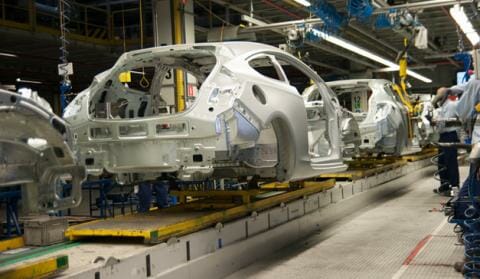According to Fitch Solutions’ report, Malaysia’s overall Autos Production Risk/Reward Index (RRI) output improved enough this quarter to secure its position as the second most attractive regional market with an overall score of 70.1 out of a possible 100.
In the most recent update of its RRI, the Asia region maintains its position as the most attractive region for vehicle production globally, followed by Europe (52.8) and the Americas (44.0).
Reportedly, the region performed particularly well under the Reward pillar of our RRI (59.1), especially under the ‘Competitive Landscape’, ‘Average wages/labour costs’, and ‘Manufacturing Capability’ indicators.
This demonstrates that there are already many original equipment manufacturers operating in the area and that there are supporting reasons for more car manufacturers to set up operations in the region because of the low labor cost and the production potential of the region.
Malaysia’s performance under the ‘Cost and Availability of Utilities’ indicator improved the most, increasing to 80.4 out of a possible 100, up from just 66.1 previously.
Malaysia is richly endowed with natural resources relative to many of its regional peers, such as Singapore and Hong Kong, benefiting companies with widespread access to reliable and inexpensive utilities, particularly fuel and electricity.
Nonetheless, through financial assistance, the government will fail to keep fuel prices steady because of a combination of higher oil consumption levels and poor tax revenue collection, which will place a significant strain on government finances.
The report further revealed that power capacity and generation have grown rapidly over the last five years to keep up with the country’s rising power demand in Malaysia.
This implies that car manufacturers looking to set up shop in Malaysia will have access to relatively low-cost utilities, which will put Malaysia above India, a market that struggles to provide adequate utilities at reasonable rates.
In addition, while the country’s vehicle production growth outlook is quite subdued, it is increasingly looking to climb the automotive value chain.
Flitch Solutions stated that Malaysia is well-positioned to move up the automotive value chain as a strong focus of the country’s newly revised automotive policy puts more emphasis on high-tech automotive solutions.
Notably, the objective of the latest iteration of Malaysia’s National Automotive Policy (NAP2020) is to make a significant leap from the previous policy revision, to now focus on spearheading the digital transformation of the country’s automotive industry.
Moreover, growing technological trends in the global automotive industry such as autonomous vehicle technology, big data analytics, and artificial intelligence, among others, have been identified by the Malaysian government in shaping the next step in Malaysia’s automotive industry over the next decade.
The report concluded that the steps taken by the Malaysian government to prioritise more tech-oriented automotive activities will provide sufficient competition to its regional peers as a tech hub for the automotive industry’s shift towards digital transformation.









